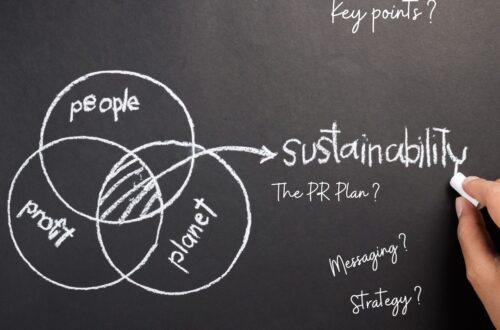
5 Skills that Communications Professionals Must Have to Succeed at Impact Storytelling
Typically, phrases like brand marketing and public relations have been associated with the corporate communications space – technology companies, large-scale startups, consumer brands, and the like. However, over the last few years, there has been an increasing appetite for these skills even in the social impact space. NGOs, CSR bodies, and other social impact organisations have realised the importance of building awareness around their causes, tailoring their communications to modern needs, and having a stakeholder-first approach towards public relations.
In this fast-evolving space, impact communications can sometimes seem to stand at an impasse. The asks – from creating large-scale change to building community voices – are at odds with the shoestring budgets that agencies are often expected to work with, making impactful storytelling daunting. But where’s the fun without a bit of a challenge, right?
With over a decade of storytelling experience in this space, I can guarantee that there is very little as satisfying as using communications to make a difference, and it’s hugely gratifying to see the industry adopting this change as well. Here are 5 skills one must develop to be able to tell impactful stories in the non-profit sector:
Being Creative:
Of course, it goes without saying that storytelling of any kind requires creative thinking, but in the world of impact communications, it becomes more important than ever. Often, in the non-profit space, we are storytelling about causes that are extremely serious, like gender, education, disability, or healthcare. This is precisely the reason why creativity and campaign thinking is important. To make people believe in your cause when they are saturated by content from various sources, a communications professional must think outside the box to come up with compelling narratives that will hook the viewer and keep them coming back for more.
Being Nimble:
Gone are the days when a strategy could be made in one shot and then executed for months – or maybe even years – on end. In a fast-changing world, plans are our compass that ensure we stay on track and have larger goals, but we must be nimble enough to course correct as we learn. Every day, there are new developments, trends, and world events. While many of these may have no bearing on your client, many might. Additionally, though some concepts may have blown your client away at the planning stage, stakeholders may not respond as positively when you execute. In these cases, it is important to tweak content and strategy basis your learnings to make your ideas come to life in the best way possible.
Listening:
Very closely related to the previous point is the ability and discipline to put your ear to the ground and listen to what’s happening in the world around you. What’s the competition doing and is it too similar to what you’re putting out? Are there relevant government or policy announcements you could write a LinkedIn article about? Did a celebrity share an Instagram story on a similar topic? Is there a trending audio that could be used in your next reel? The ability to listen – and to listen well, while filtering out what’s irrelevant – could be the difference between a good and a great campaign.
Research:
Nothing – absolutely nothing – could be as important as understanding your client, your target audience, and the ecosystem well before you start planning or executing. Chances are, a lot of great ideas that you have as a wide-eyed, enthusiastic newcomer in a certain space may have been executed before. To gain client trust as a credible, creative, and critical thinker who is not just an agency, but a partner in realising their vision, it is important to delve deep into research and immerse yourself in the space that you will be communicating about.
Budgeting:
Money may not be able to buy you love, but it can certainly buy you visibility. While guerilla marketing, organic communications, and user-generated campaigns will always be important in the impact storytelling space due to budget constraints, it is important for both clients and agencies to know the worth of strong narrative building. Investing a little money strategically – into good videography, strategic digital marketing spends, and of course, the right talent to execute powerful storytelling – can make all the difference between work as usual and an award-winning campaign.
We stand at the cusp of huge change in the impact communications space, and I, for one, can’t wait to ride the wave. What about you?
Antara Telang (She/Her)
Director – Content and Digital
Gnothi Seauton




